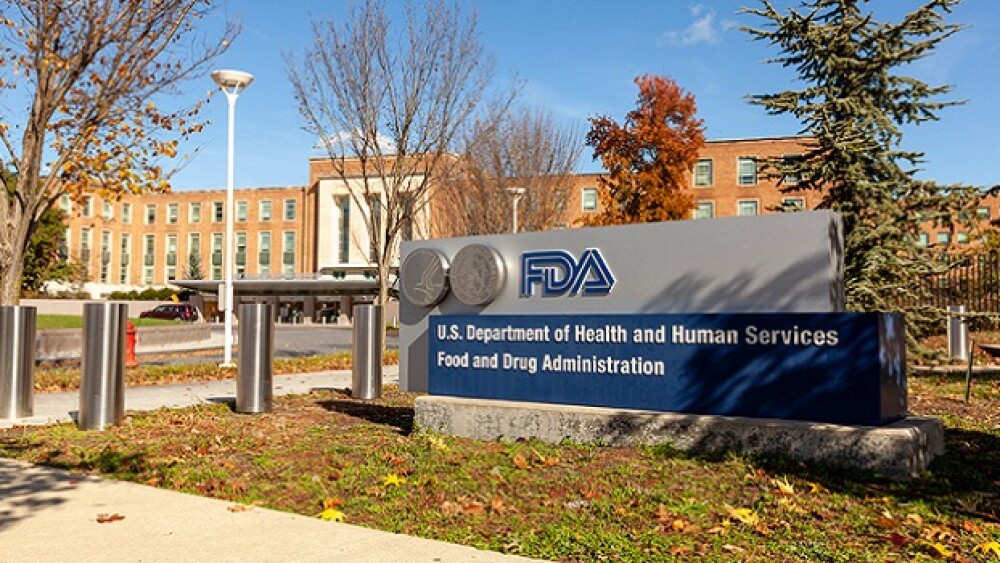Nation must prepare for immediate and long-term impacts of COVID-19 on the nation’s mental health
Nation must prepare for immediate and long-term impacts of COVID-19 on the nation's mental health
WASHINGTON, March 20, 2020 /PRNewswire/ -- A cross-sector group of 88 organizations from the mental health and substance misuse, public health and patient-advocacy sectors are jointly calling on the Trump Administration and Congress to address the immediate and long term mental health and substance misuse treatment needs of all Americans as part of their COVID-19 response. Such consideration is especially important as the anxiety and social isolation related to the COVID-19 pandemic are likely to increase the need for mental health and substance misuse care, according to the group's leaders.
In a letter sent to Vice President Pence and House and Senate leadership today, the group recognizes the importance of social distancing but also cites the need to proactively address the short and long-term impacts of social isolation on Americans' mental health. Of particular concern are those people who are currently being treated for a mental health or substance misuse issue, treatment that may be interrupted by illness, stay-at-home orders, business shut-downs or the loss of income or health insurance.
Access to mental health and substance misuse treatment is an ongoing concern, likely to be exacerbated by the COVID-19 crisis. Currently, 112 million Americans live in a mental health professional shortage area. Furthermore, loneliness and social isolation are already a daily reality for many Americans and is estimated to shorten a person's life by 15 years – the equivalent impact of having obesity or smoking 15 cigarettes a day. This problem will only increase as further social distancing requirements are put in place.
The cross-sector group is calling for immediate action to address Americans' mental health and substance misuse needs during the COVID-19 response. And, for the longer term, strengthening the nation's mental health and substance misuse treatment system so it meets the needs of all Americans, regardless of their socioeconomic status, their employment status or where they live.
The group is following for the following action steps: The Administration and/or Congress should:
Immediately implement measures to ensure access and continuation of mental health and substance use services to all individuals during the COVID-19 response and during future public health emergencies including:
- HHS should issue guidance clarifying that mental health and substance use clinicians and professionals are included in priority testing for COVID-19as well as targets of emergency medical supplies including masks, respirators, ventilators, and other needed resources for health care professionals during this crisis.
- CMS should issue guidance for various care contingencies should substance use treatment providers become sick or unable to work and affect required quotas for reimbursement.
- SAMHSA should issue guidance to support remote recovery support groups.
- Congress should pass S. 2244/H.R. 4131, the Improving Access to Remote Behavioral Health Treatment Act, to clarify the eligibility of community mental health and addiction treatment centers to prescribe controlled substances for opioid use disorder via telemedicine. HHS recently waived the Ryan Haight restrictions for this pandemic, but this ends once the national emergency ends which could create treatment gaps.
- HHS should launch a special enrollment period for commercial health insurance in the healthcare.gov marketplace during this crisis and future public health crises.
- Congress should ensure that all government health plans provide extended supplies and/or mail order refills of prescriptions.
- Congress should allow for all current discretionary and block grant funds for mental health and substance use programs, including prevention, intervention, treatment, and recovery support, across all relevant agencies across the federal government that cannot be spent this fiscal year due to the pandemic to be automatically extended into Fiscal Year 2021.
Pass, implement, and/or appropriate funding to strengthen crisis services and surveillance including:
- S. 2661/H.R. 4194, the National Suicide Hotline Designation Act, which would formally designate a three-digit number for the Lifeline.
- H.R. 4564, The Suicide Prevention Lifeline Improvement Act, which would implement a set of quality metrics to ensure resources are effective and evidence-based.
- H.R. 4585, the Campaign to Prevent Suicide Act, which establishes an educational campaign to advertise the National Suicide Prevention Lifeline and suicide prevention resources.
- H.R. 1329, Medicaid Reentry Act, which would allow Medicaid-eligible incarcerated individuals to restart their benefits 30 days pre-release.
- Increase funding for the Disaster Distress Helpline.
- Increase funding to serve people who are homeless and to divert people who are at immediate risk of becoming homeless during this crisis.
Pass and implement reforms to ensure long-term availability of care, especially for populations at higher risk of self-harm or substance misuse, including:
- S. 824/H.R. 1767, the Excellence in Mental Health and Addiction Treatment Expansion Act, which would expand the Certified Community Behavioral Health Clinic Program.
- S. 1122/H.R. 1109, the Mental Health Services for Students Act which expands SAMHSA's Project AWARE State Educational Agency Grant Program to support provision of mental health services.
- S. 2492/H.R. 2599, the Suicide Training and Awareness Nationally Delivered for Universal Prevention (STANDUP) Act, which would create and implement suicide prevention training policies in states, tribes, and school districts.
- Enforce mental health parity and pass S. 1737/H.R. 3165, the Mental Health Parity Compliance Act and S. 1576/H.R. 2874, the Behavioral Health Transparency Act.
- Expand HRSA's NHSC Substance Use Disorder Workforce Loan Repayment Program H.R. 2431, the Mental Health Professionals Workforce Shortage Loan Repayment Act, which would establish a loan repayment program for mental health professionals working in shortage areas.
- S. 2772/H.R. 884, the Medicare Mental Health Access Act, which would allow expand the definition of "physician" under Medicare, allowing psychologists to practice to the full extent of their state licensure without physician oversight of Medicare facilities.
HHS should consider the mental health and substance use effects of future pandemics and national emergencies including:
- Establishing an interagency taskforce or advisory committee on disaster mental health and substance use to ensure future responses take proper measures to coordinate care, allocate resources, and take appropriate measures to ensure recovery.
- Convening a working group to review current research and funding on disaster mental health through NIH, AHRQ, CDC, SAMHSA, HRSA, FDA, and the Department of Justice, and other relevant agencies and identify gaps in knowledge, areas of recent progress, and necessary priorities.
Signing on to the letter were:
2020 Mom, AAMFT Research & Education Foundation, Active Minds, Addiction Connections Resource, Advocates for Opioid Recovery, African American Health Alliance, American Academy of Addiction Psychiatry, American Art Therapy Association, American Association for Marriage and Family Therapy, American Association for Psychoanalysis in Clinical Social Work, American Association of Suicidology, American Counseling Association, American Dance Therapy Association American Foundation for Suicide Prevention American Group Psychotherapy Association, American Mental Health Counselors Association, American Psychological Association, American Public Health Association, Anxiety and Depression Association of America, California Pan-Ethnic Health Network Center for Law and Social Policy (CLASP)Centerstone, Children and Adults with Attention-Deficit/Hyperactivity Disorder, Clean Slate Medical Group -Addiction Treatment, Clinical Social Work Association, Coalition to End Social Isolation & Loneliness, College of Psychiatric and Neurologic Pharmacists (CPNP )Colorado Children's Campaign Columbia Psychiatry, Community Anti-Drug Coalitions of America (CADCA, )Community Care Alliance Davis Direction Foundation, Depression and Bipolar Support Alliance, Easterseals, Eating Disorders Coalition, Families USA, Flawless Foundation, Foundation for Recovery, Global Alliance for Behavioral Health and Social Justice, Greater Philadelphia Business Coalition on Health, Health Resources in Action, Hogg Foundation for Mental Health, InnovaTel, Telepsychiatry International, OCD Foundation,
Mental Health America, NAADAC, the Association for Addiction Professionals, National Association of County Behavioral Health and Developmental Disability Directors, National Association for Rural Mental Health (NARMH), National Alliance on Mental Illness, National Association for Children of Addiction (NACoA, )National Association of Community Health Workers, National Association of Counties, National Association of Social Workers, National Association of Social Workers -Texas Chapter, National Association of Social Workers at the University of Southern California, National Association of State Mental Health Program Directors, National Council for Behavioral Health, National Eating Disorders Association, National Federation of Families for Children's Mental Health, National Organization on Fetal Alcohol Syndrome, National Register of Health Service Psychologists, Network of Jewish Human Service Agencies, Neurofeedback Advocacy Project, New Jersey Association of Mental Health and Addiction Agencies, Inc., O'Neill Institute for National and Global Health Law, Postpartum Support International, Prevention Institute, Public Health Foundation, Residential Eating Disorders Consortium, Robert Graham Center, San Francisco AIDS Foundation, San Juan County Behavioral Health Department, Sandy Hook Promise SMART Recovery, Staten Island Partnership for Community Wellness, Suicide Awareness Voices of Education, Texans Care for Children, The Confederation of Independent Psychoanalytic Societies (CIPS), The Gerontological Society of America, The Institute for Innovation & Implementation at UMBSSW, The Jed Foundation, The National Alliance to Advance Adolescent Health, The Trevor Project, The Voices Project, Trust for America's Health, United States of Care, University of Southern California, Well Being Trust.
Trust for America's Health is a nonprofit, nonpartisan organization that promotes optimal health for every person and community and makes the prevention of illness and injury a national priority. Twitter: @healthyamerica1
![]() View original content to download multimedia:http://www.prnewswire.com/news-releases/cross-sector-group-of-eighty-eight-organizations-calls-on-congress-to-address-americans-mental-health-and-substance-misuse-treatment-needs-as-part-of-covid-19-response-301027634.html
View original content to download multimedia:http://www.prnewswire.com/news-releases/cross-sector-group-of-eighty-eight-organizations-calls-on-congress-to-address-americans-mental-health-and-substance-misuse-treatment-needs-as-part-of-covid-19-response-301027634.html
SOURCE Trust for America's Health





